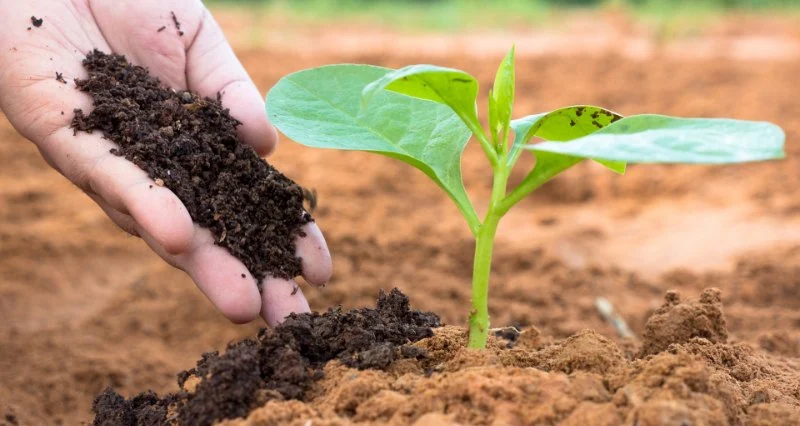
- 1 - What Are Organic Fertilizers?
- 2 - Pros of Using Organic Fertilizers
- 3 - Cons of Using Organic Fertilizers
- 4 - How to Use Organic Fertilizers Effectively
- 5 - Tips for Choosing the Right Organic Fertilizer
1 - What Are Organic Fertilizers?
Organic fertilizers are natural substances derived from plant, animal, or mineral sources that are used to enrich the soil and provide essential nutrients for plant growth. Unlike synthetic fertilizers, which are chemically manufactured, organic fertilizers improve soil health over time by adding organic matter and promoting a healthier ecosystem. These fertilizers come in many forms, such as compost, manure, bone meal, and fish emulsion, and they release nutrients slowly, making them ideal for long-term plant care.
The key difference between organic and synthetic fertilizers is that organic fertilizers are typically more environmentally friendly, helping to improve soil structure and maintain its health without damaging the surrounding environment. They are also rich in micronutrients that promote healthy soil biology, which in turn benefits plant growth.
2 - Pros of Using Organic Fertilizers
There are several benefits to using organic fertilizers in your garden or on your plants. Here are some of the key advantages:
- Improved Soil Health
One of the biggest advantages of using organic fertilizers is the improvement they provide to soil health. Organic fertilizers add organic matter to the soil, which enhances its structure and fertility. This leads to better water retention, increased microbial activity, and improved aeration. Healthy soil supports healthy plants by providing a more balanced and sustainable growing environment.
- Environmentally Friendly
Organic fertilizers are more eco-friendly compared to synthetic alternatives. They do not contain harmful chemicals or pollutants that can run off into water systems or damage surrounding ecosystems. By using organic fertilizers, gardeners help protect biodiversity and reduce the environmental impact of their gardening practices.
- Long-Term Sustainability
Organic fertilizers work gradually, improving the soil's nutrient content over time. This means that, unlike synthetic fertilizers that can lead to nutrient imbalances or depletion of soil health over time, organic fertilizers promote long-term sustainability by enriching the soil naturally. Over time, organic fertilizers can lead to healthier, more resilient plants and reduce the need for chemical treatments.
3 - Cons of Using Organic Fertilizers
While organic fertilizers offer many benefits, there are some drawbacks to consider. Understanding these limitations will help you decide if they are the right choice for your gardening needs:
- Slower Release Time
One of the main downsides of organic fertilizers is that they release nutrients more slowly compared to synthetic fertilizers. This can be a disadvantage if plants are in need of a quick nutrient boost. Organic fertilizers typically take weeks to break down and release nutrients, which means they are better suited for long-term, ongoing care rather than immediate results.
- Higher Cost
Organic fertilizers are often more expensive than synthetic fertilizers, especially if you're using high-quality, natural products like composted manure or fish emulsion. However, this higher initial cost can be justified by the long-term benefits they provide in terms of soil health and plant resilience.
- More Frequent Application
Because organic fertilizers release nutrients slowly, they may require more frequent applications to maintain healthy plant growth. This can be more labor-intensive than synthetic options, which typically require fewer applications throughout the growing season.
4 - How to Use Organic Fertilizers Effectively
To make the most of your organic fertilizers, it's important to apply them correctly. Here are some tips to ensure effective use:
- Proper Timing
The timing of your fertilizer application can impact its effectiveness. It’s best to apply organic fertilizers during the growing season when plants are actively absorbing nutrients. Apply fertilizers in early spring or fall to give your plants the nutrients they need during their peak growth periods.
- Application Methods
Organic fertilizers can be applied in various ways, including top-dressing, side-dressing, or mixing into the soil before planting. For example, compost can be spread over the soil surface, while bone meal is often mixed into the soil during planting. Follow the specific recommendations for each type of fertilizer to ensure proper application and avoid overuse.
- Watering After Application
After applying organic fertilizer, it’s important to water the soil thoroughly. This helps activate the fertilizer and allows nutrients to be absorbed by the plant roots. Watering also helps prevent the fertilizer from drying out on the soil surface.
5 - Tips for Choosing the Right Organic Fertilizer
With so many organic fertilizer options available, it can be difficult to choose the right one for your needs. Here are some tips to guide you in selecting the best organic fertilizers for your garden:
- Know Your Soil
Understanding your soil's nutrient content is crucial when choosing the right fertilizer. Test your soil to determine which nutrients are lacking, and select an organic fertilizer that addresses those deficiencies. For example, if your soil is low in nitrogen, choose a fertilizer like blood meal or fish meal.
- Consider Plant Needs
Different plants have different nutrient needs. Some plants, like leafy greens, need more nitrogen, while fruiting plants require more phosphorus and potassium. Tailor your fertilizer choice to your specific plants to maximize their growth potential.
- Choose Quality Products
Not all organic fertilizers are created equal. Look for reputable brands that provide high-quality, natural fertilizers. Check labels for organic certification and avoid fertilizers with excessive fillers or chemical additives that could negate the benefits of organic gardening.
If you’re looking for the best organic fertilizers and gardening tools to help maintain a thriving garden, check out Beautiful Landscapes for top-quality products that are tailored to your gardening needs.


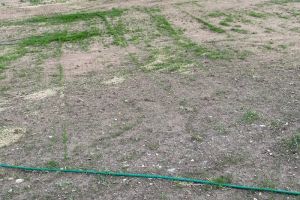
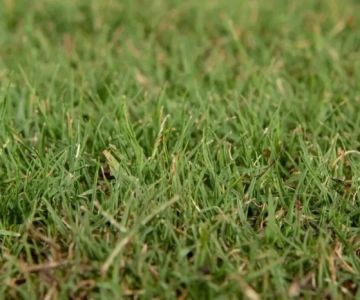
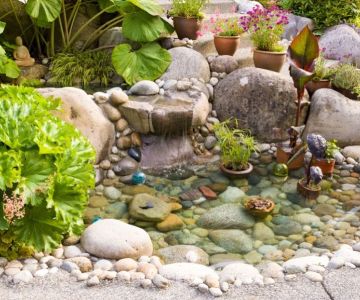




 Arellano Landscaping4.0 (52 reviews)
Arellano Landscaping4.0 (52 reviews) AllTuszk Lawn & Maintenance, LLC4.0 (35 reviews)
AllTuszk Lawn & Maintenance, LLC4.0 (35 reviews) Midwestern Outdoor Services5.0 (9 reviews)
Midwestern Outdoor Services5.0 (9 reviews) Tlmc Landscaping5.0 (30 reviews)
Tlmc Landscaping5.0 (30 reviews) Elegant Outdoor Designs4.0 (25 reviews)
Elegant Outdoor Designs4.0 (25 reviews) Freitag Seasonal Services, LLC5.0 (2 reviews)
Freitag Seasonal Services, LLC5.0 (2 reviews) How to Incorporate Steps & Elevation Into Design
How to Incorporate Steps & Elevation Into Design How to Use Native Grasses for Texture & Movement in Your Garden
How to Use Native Grasses for Texture & Movement in Your Garden Tips for Maintaining a Lawn in a Hot, Dry Summer
Tips for Maintaining a Lawn in a Hot, Dry Summer How to Deal With Sloped Yards: Terracing & Retaining Walls
How to Deal With Sloped Yards: Terracing & Retaining Walls How Much Value Does Landscaping Add to a Home? Explore the Benefits and Impact
How Much Value Does Landscaping Add to a Home? Explore the Benefits and Impact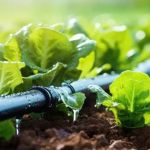 How to Use Drip Irrigation to Save Water Effectively
How to Use Drip Irrigation to Save Water Effectively